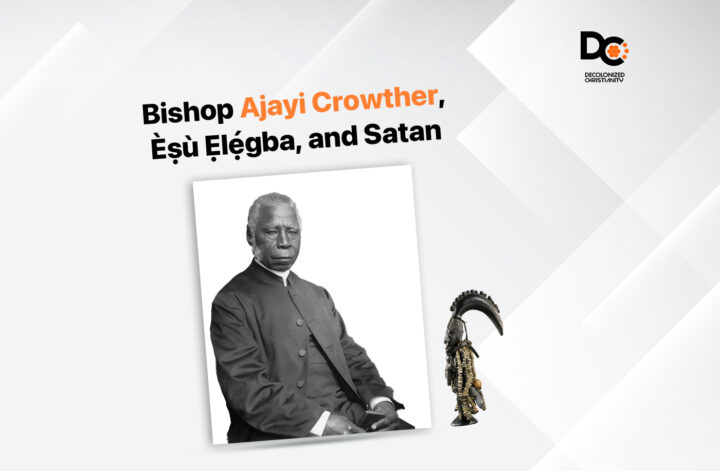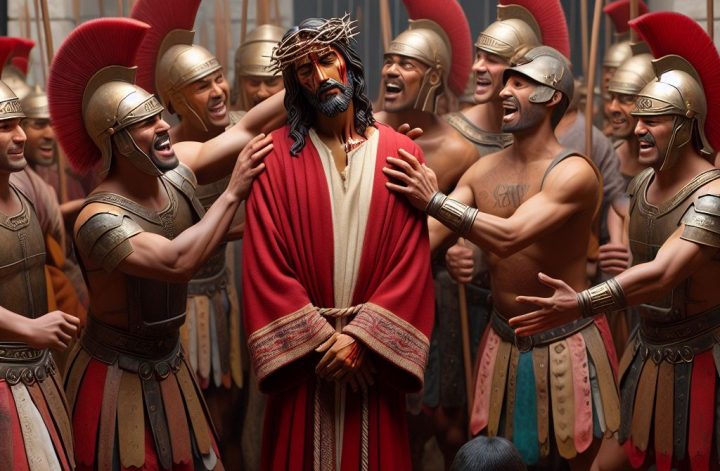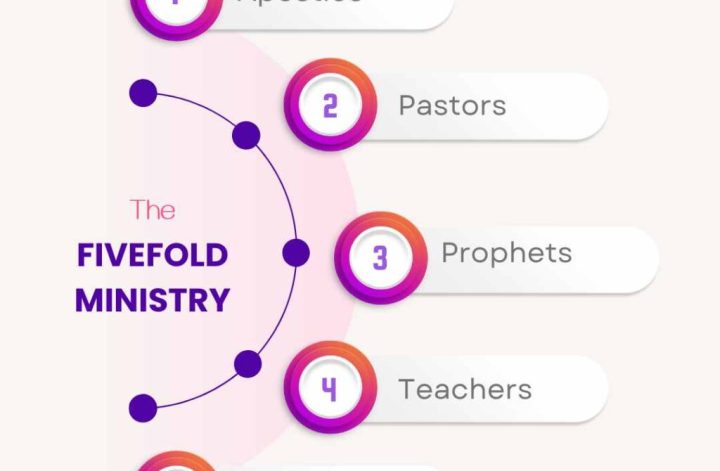Background
Bishop Samuel Ajayi Crowther’s contributions to African Christianity are well attested in the Christian world, especially in the Global South. In his native land, however, the Bishop is mainly seen as a villain than a hero. He is seen as an able instrument of colonialism used to undermine Yoruba metaphysics. His significant achievement, a Yoruba version of the Bible, is critically described as a courier of “Euro-Christian ideas, beliefs, and cultural logics” (Adefarakan, 45) written in the Yoruba language. Among the adherents of the traditional Yoruba religion, Bishop Crowther is a traitor who willfully allowed himself to be used in the corruption of what he once held dear.
There indeed is much merit to these critiques. Undoubtedly, the Christianity Crowther received through his British education had already been baptized in colonial and hegemonic ideals. Also, Crowther’s Yoruba Bible plays a role in the widespread confusion among modern Yoruba Christians who believe that Èṣù, a central divinity among the Yoruba pantheon, is the same as Satan. Indeed, Crowther’s greatest sin against Ifa adherents is his supposed collapsing of the identities of these two different divine beings. In this essay, I shall argue that when we consider the totality of the Bishop’s life, much of the critiques directed against him are misguided. Bishop Crowther can hardly fairly be said to have corrupted Yoruba metaphysics.
Ajayi’s Early Life
Bishop Ajayi Crowther was born about 1807 in Osogun, Oyo, at a time of significant political instability. The Oyo Empire had already broken up, and wars routinely broke out. This period also witnessed “great Islamic jihads, which were establishing a new Fulani empire to the north” (Walls, 15). Some Oyo Muslims joined forces with Fulani soldiers to raid Oyo towns and capture Oyo people to sell into slavery—intertown and the Transatlantic slaveries. In a famous letter written in 1837 to the then Secretary of the Church Missionary Society (CMS), Bishop Crowther detailed some of the horrors he endured in the hands of his fellow Oyo kinsmen 16 years earlier.
The 14-year-old Ajayi was captured along with two sisters, including an infant about ten months old, a cousin, and his mother. En route to their Oyo Muslim captors’ camp at Iseyin, Ajayi saw his grandmother and other cousins who were also already captured. The boy witnessed the murder of aged women who could not walk as fast as their captors wanted. Shortly after arriving at Iseyin, Ajayi was bartered for a horse. He was separated from his mother and sisters; he would not see them for 25 years. He was exchanged at least six times between Osogun and Lagos. He was eventually sold to Portuguese traders in enslaved people.
On the night that the Portuguese ship sailed, a British naval squadron intercepted it on April 7, 1822. About the same year that Ajayi was born, the British Parliament had abolished the slave trade in 1807, and a coalition of primarily anti-slavery evangelical British Christians associated with William Wilberforce had established the colony of Sierra Leone as a place to resettle people delivered from slavery (Walls, 15). By 1822, Sierra Leone had become a Christian community. Though the residents were of various African backgrounds, “the whole way of life of Sierra Leone—clothing, buildings, language, education, religion, even names—closely followed Western models” (Walls, 16). This was the environment that Ajayi was brought to on June 17, 1822, and where he began his education. At his baptism by Reverend John Raban, Ajayi chose the name Samuel Crowther, after an eminent clergyman.
Reverend Raban was an interesting character who played a significant role in Bishop Crowther’s linguistic achievements. Reverend Raban was one of few European missionaries who saw value in African languages for missionary works. Walls writes, “To many of his colleagues the priority was to teach English, which would render the African languages unnecessary. Raban realized that such policy was a dead end; he also realized that Yoruba, Crowther’s mother tongue, was a major language” (16). Indeed, Sierra Leone “had among the liberated Africans brought there from the slave ships a vast language laboratory for the study of all the languages of West Africa” (Walls, 16). The young Crowther worked with Reverend Raban as an informant. The Reverend would later publish three books about Yoruba between 1828 and 1830 (Walls, 16). In time, Crowther worked systematically on the Yoruba language and other languages.
Though the evangelical work that resulted in the establishment of Sierra Leone was a good cause, it is hard to miss the racism and hegemony therein. The dominant Christian missionary view was to teach English at the expense of the African languages of the residents. Given the history of British imperialism, none of these things is surprising. This observation is critical for it may help explain the evolution of Crowther’s thoughts. Andrew Walls, for instance, wrote (16):
Crowther was appointed a schoolmaster of the mission, serving in the new villages created to receive “liberated Africans” from the slave ships. A schoolmaster was an evangelist; in Sierra Leone church and school were inseparable. We get glimpses of an eager, vigorous young man who, at least at first, was highly confrontational in his encounters with representatives of Islam and the old religions in Africa. In later life he valued the lessons of this apprenticeship—the futility of abuse, the need to build personal relationships, and the ability to listen patiently.
So, the Bishop’s development is not atypical. With the zeal and ignorance of youth, he was “highly confrontational.” But he learned later in life to “listen patiently” and “build personal relationships.” Might a similar development be discernible in his evaluation of the faith he received in Sierra Leone? I think we may.
In due time, Sierra Leoneans with entrepreneurial spirit began to buy confiscated slave ships and sailed far away from Sierra Leone. Some of them of Yoruba descent sailed to their native land and settled there. This development convinced the Church Missionary Society of the timeliness of mission work in Yoruba land. Along with the Niger Expedition of 1841, this sailing development would reintroduce Crowther to Yorubaland.
Crowther and the Yoruba Bible
A mission team primarily staffed with Sierra Leoneans of Yoruba descent began work in Abeokuta (Walls, 18). Unlike in Sierra Leone, where the church worked in English, the mission team in Abeokuta used Yoruba with the help of native speakers from Sierra Leone. Crowther’s earlier linguistic works, such as his Yoruba Vocabulary, were helpful to the Europeans like the British Henry Townsend and the German missionary C. A. Gollmer. The need for a Yoruba version of the Bible was apparent. So, Crowther went to work. It would take about forty-one years to complete the task.
Andrew Walls draws our attention to how underappreciated the exercise of translating the Bible into the Yoruba language is. Crowther’s Yoruba Bible was not the first translation into an African language. However, “in no earlier case was a native speaker able to judge and act on an equal footing with the European” (18). Translation work is hard to undertake where standard orthography is absent. The Yoruba language was not a written language, and it became one because of the need for a Yoruba bible. Walls writes:
Written Yoruba was the product of missionary committee work, Crowther interacting with his European colleagues on matters of orthography. Henry Venn engaged the best linguistic expertise available in Europe; not only Schön and the society’s regular linguistic adviser, Professor Samuel Lee of Cambridge, but the great German philologist Lepsius. The outcome may be seen in the durability of the Yoruba version of the Scriptures to which Crowther was the chief contributor and in the vigorous vernacular literature in Yoruba that has grown up.
The point Walls makes here is well-documented: an African language Bible translation exercise often led to an explosion in literary works in that language. It certainly did in the case of the Yoruba Bible.
Crowther also departed from the norm of the day in the business of translation. He wanted the Yoruba Bible to convey tone. Walls writes (18), “In vocabulary and style he sought to get behind colloquial speech by listening to the elders, by noting significant words that emerged in his discussions with Muslims or specialists in the old religion. Over the years, wherever he was, he noted words, proverbs, forms of speech.” Had Crowther not lost his notes of eleven years when his house burned down in 1862, the Yoruba Bible might have even been a more elegant work of literature.
In the process of undertaking his magnum opus, Crowther made a move that yet infuriates his critics. For reasons not all clear, Bishop Crowther opted to translate “the Devil” as “Èṣù”. The problem is that there is a central divinity among the Yoruba pantheon by that name. There is no doubt that the mention of Crowther’s Èṣù would recall the traditional Yoruba divine being. It is also interesting to note how Crowther (and his team) did it. Adefarakan observes that the New King James Version has thirty-five occurrences of “devil.” Crowther translated all of them as “Èṣù.” He, however, does not do the same with the related term “Satan,” choosing instead to corrupt this label as “Satani” (41). This move would seem to indicate that Crowther wants to identify Èṣù with “the devil.” Indeed, Adefarakan argues that “a conscious effort to sabotage Èṣù existed specifically because of the deity’s unique role and function within the Yoruba metaphysical system.” (39). In her view, Adefarakan believes that Crowther sought to undermine Yoruba metaphysics with his choice of translation.
To better engage with Adefarakan and other Crowther’s critics, we should say a few things about the traditional Yoruba Èṣù, the “Euro-Christian” Satan that Adefarakan critiques, and the Judeo-Christian Satan. We might even uncover possible factors influencing Crowther’s translation choices.
Works Cited
Adefarakan, Temitope. “‘At a Crossroads’: Spirituality and The Politics of Exile: The Case of the Yoruba Orisa.” Obsidian, vol. 9, no. 1, 2008, pp. 31–58. JSTOR, http://www.jstor.org/stable/44489275. Accessed May 25 2022.
Walls, Andrew F. “Samuel Ajayi Crowther (1807-1891) Foremost African Christian of the Nineteenth Century.” International Bulletin of Missionary Research, vol. 16, no. 1, 1992, 15–21. doi:10.1177/239693939201600104. Accessed May 25 2022.




